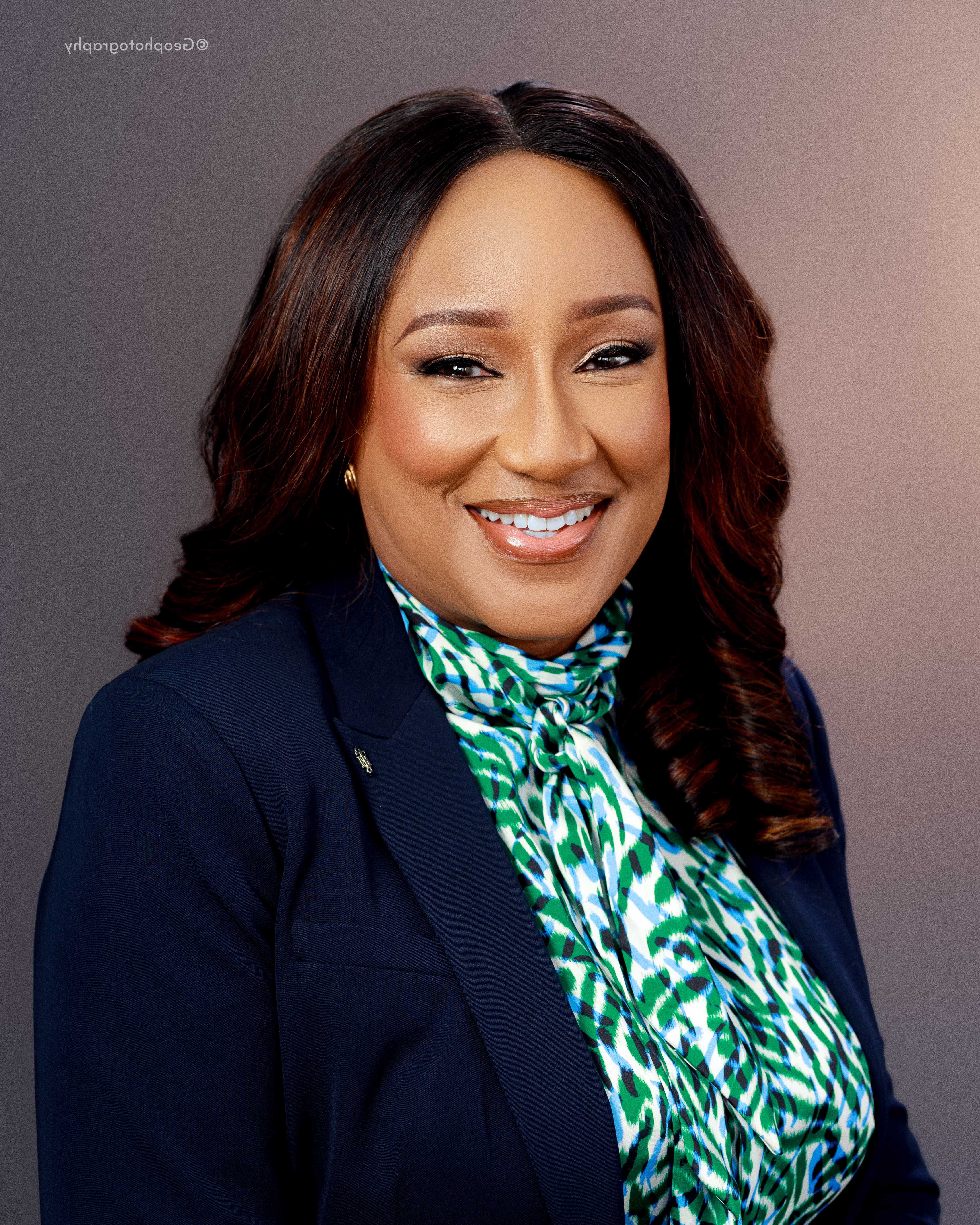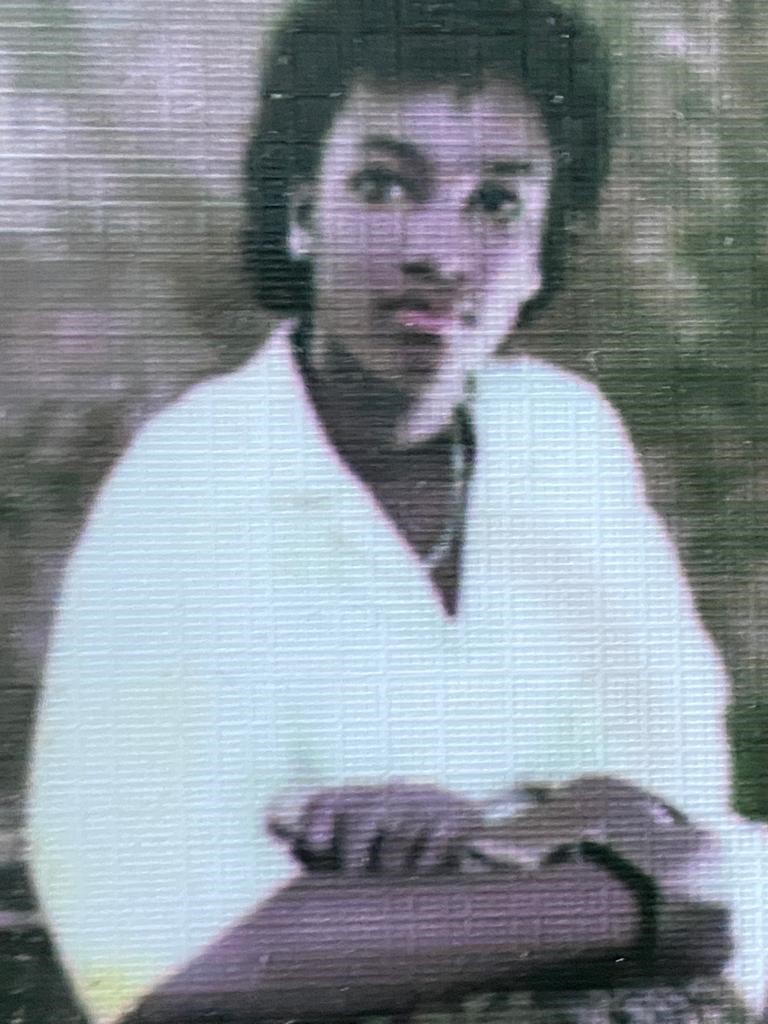Interview with Adaora Ayoade

Grow Learn Connect: Adaora, every child has a vision of who they would like to be when they grow up. Did your vision materialize?
Adaora Ayoade: Growing up, I wanted a career that had to do with impacting people positively. My vision was and still is to make a positive change in people’s lives. This has come to play in the core values of EZ37 solutions. It also correlates with my name Adaora, which means 'Daughter of the people'. I am very proud that through my business, I impact lives positively, which is a true manifestation of my vision.
GLC: Before you received an MBA from the Business School Netherlands and completed a Harvard Business School program, your educational track had prepared you to become a scientist – a microbiologist. What prompted you to change your aspirations?

AA: Getting into the science field was not an aspiration of mine, but rather I was fulfilling the desires of my father who had always wanted me to become a doctor. During that time, I developed an interest in human resources (HR) and realized that I enjoyed doing things around people more than being a scientist.
GLC: How did your professional career prepare you for where you are today – a CEO of the consulting company EZ37 Solutions and former president of the International Coaching Federation, Nigeria Chapter? What were the major milestones?
AA: I have always been a people person, and on my professional journey, I met a lot of people who have been a huge support to me. Being a coach did not come so quickly, I had to go through a lot of training and a multitude of exams. It is still a work in progress, and I am still on a journey.
I had initially never considered being the president of the ICF Nigerian chapter but was later encouraged by those around me. I was prompted to take up the vice president's role, which led to the position of the president. I served my term, so now I am officially a former president.
One major milestone was getting the right partnership. Entering into a strategic partnership with the number one human resource firm in the world, Mercer, helped reposition our brand and placed us on the map of excellence.
Another milestone was starting our coach training and getting the International Coaching Federation (ICF) to accredit our program.
In addition to that, gaining a relationship with the International Financing Corporation (IFC), through the Grow Learn Connect platform, has made a positive shift to the services we offer.
GLC: Looking back, what would you have recommended to your inexperienced self when you just started your professional career?
AA: Go and work in a consulting firm before starting your consulting firm. You don’t need to learn the hard way through your mistakes. Work with a business mentor.
GLC: What’s in a name? How did EZ37 Solutions acquire its name?
AA: A name is a form of identity to help people know who we are, which helps clients relate with us. The name EZ37 Solutions is from a holy book called the Bible where a prophet Ezekiel asked God if dry bones could rise again and he prophesied and the dry bones became an exceedingly great army; in this vein, our consulting intervention will impact businesses in a transformative way.
GLC: What differentiates your company from other training and consulting companies in Nigeria?
AA: Our methodology: We are strong on impact assessment and not just training outcomes, we ensure you see training as an investment rather than an activity.
GLC: Did the company easily adapt to the new normal imposed by the pandemic? What practices will it retain after the pandemic?
AA: Yes, we did. We previously had a flexible work pattern; hence, the pandemic caused us to embrace the culture of working from home. Also, it gave rise to the integration of technology into our business functions and operations, which can be easily outsourced.
GLC: If you had to compare yourself with a song, what would it be and why?
AA: A song: ‘Steadfast Love’ by Don Meon. This song speaks of the expression of God’s love and the way He showers me with such love, so much so that everything about me is dependent on him.
GLC: What is one thing most people don’t know about you?
AA: I like fast automobiles. I like fast bikes and cars, so much so that I used to drive a bike around in my village when I was younger. Now I have some interest in Formula One.
GLC: If choosing between scuba diving (underwater), hiking (on Earth), and sky diving (in the air), which would you rather do and why?
AA: I would scuba dive. Scuba diving gives one a chance to go beneath, see nature not yet uncovered, and appreciate what is not obvious to the eye. In addition, I enjoy swimming, and that appears to be a nice serene place to swim.
GLC: What makes you a good coach?
AA: “Coaching mastery isn’t just about improving skills; mastery also requires that you quickly catch internal disruptions and shift back to being fully present with your clients.” – Marcia Reynolds. I continuously aim to be fully present for my clients, stepping back and letting them express themselves. I aim to give them a haven.
GLC: What are some of the most common myths about coaching that you think are important to debunk?
AA: The first myth is that coaching is therapy. Coaching is not therapy; it is not going into the past, it is future-focused. Secondly, coaching is about aptitude. However, coaching is more about attitude and not about teaching skills or talent. Thirdly, people believe that a coach is an expert on the topic. The fact is that the client is the expert on the topic, and the coach is only the expert on the process.
GLC: What would you recommend to someone who would like to become a coach?
AA: Coaching helps you become a more grounded, self-aware, and emotionally intelligent individual able to support others. Coaching is a transformational process. You will know if coaching is for you, so if you want it, just do it. Coaching will transform you, your clients, and our world for the better. If you have any questions about coaching, please contact us at coaching@ez37solutions.org.
GLC: How can 360 Assessments help leaders better understand their strengths and areas for improvement?
AA: 360 Assessments gather feedback from peers, subordinates, and supervisors, offering a holistic view of a leader’s performance. This helps leaders identify their strengths and uncover blind spots, leading to actionable insights for personal and professional growth.
GLC: How does integrating coaching with 360 Assessments enhance leadership development and performance?
AA: Coaching helps leaders turn the insights from 360 Assessments into actionable strategies for improvement. It provides personalized guidance and accountability, ensuring sustainable growth. If you have any questions about Coaching and Assessments, please contact us at coaching@ezcoaching.org and assessments@ezcoaching.org.
GLC: Why is it increasingly important for organizations to measure the ROI and ROE of coaching rather than treating coaching as a soft, developmental activity?
AA: Organizations today are under pressure to demonstrate clear value for every investment — and coaching is no exception. Measuring ROI and ROE helps leaders move beyond intuition and provide evidence that coaching drives measurable business results. ROI captures the financial gains such as productivity, performance improvement, or cost savings, while ROE reflects organizational expectations such as improved engagement, better decision-making, or stronger leadership capability. Together, they show that coaching is not just transformational — it’s profitable and strategically essential.
GLC: Many coaching outcomes are intangible. How does ROE help organizations capture the full value of coaching beyond financial metrics?
AA: ROE — Return on Expectations — is critical because it allows organizations to measure the qualitative impact of coaching. This includes behavioral shifts, mindset changes, team dynamics, leadership presence, and overall workplace culture. ROE focuses on whether coaching meets strategic expectations such as improving collaboration, strengthening emotional intelligence, or enhancing well-being. It ensures we don’t miss the human-centered benefits that drive long-term performance and growth.
GLC: What final message would you give leaders who want to elevate coaching within their organizations?
AA: Coaching is one of the most powerful, measurable, and future-focused investments an organization can make. When done intentionally and evaluated properly, coaching accelerates performance, strengthens engagement, and drives both financial and cultural transformation. My advice? Treat coaching like any other strategic initiative — design it well, measure it rigorously, and communicate its impact confidently. And if you have any questions about coaching or how to implement coaching programs effectively, please contact us at coaching@ezcoaching.org — we’re happy to support you.